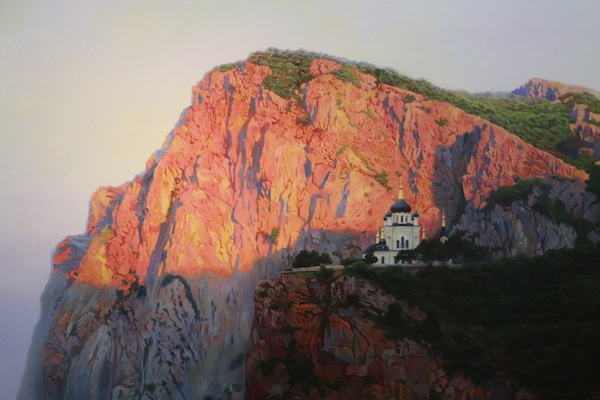Jackson Wu (PhD, SEBTS) is the author of The Cross in Context and Reading Romans with Eastern Eyes. He provides articles and resources at jacksonwu.org.

I’m not an “outdoorsy” guy. I like books, air conditioners and electricity too much. My boys and I once “camped” on our balcony because, as it turns out, Chinese cities lack forests. We didn’t make it for two hours before coming inside. But during Covid, I logged hundreds of hours hiking the mountains around Arizona. I often spent more time with my AllTrails app than my Bible. And that’s okay. God uses nature to nurture a heart of worship.
Few people enjoy deserts. Neither Moses nor Israel sought a home in the wilderness. I’m no exception. But sometimes we go anyway because that’s where God calls us. Often, we’ll find God creating sanctuaries in solitary places.
Initially, I cared little for nature. I just wanted exercise while my gym was shut down. If I learned anything spiritually, I assumed it would be from a podcast or audiobook.
This is ironic because it’s precisely my phone that stunts my spiritual growth more than other things. The dopamine cravings keep me from being present and attentive to people. The noise insulates my mind from the Spirit’s whisper.
However, on long trails and despite my inclinations, God arrested my attention. Some paths are monotonous, others dangerous. There were times when I wondered whether I’d return healthy. Snakes, cliffs and suffocating heat threaten one’s autonomy and self-sufficiency. Take the wrong path or fail to drink water? You’ll soon realize how much you need community. While hikes can push us physically, desert trails can challenge our hearts too. Prolonged silence induces withdrawal symptoms, exposing addictions to technology.
In some ways, extended times in nature remind us that we’re human. We’re dust, created, not self-made. On early morning hikes, constellations were my only companions. I felt small beneath those stars. Even on the highest peaks, God showed me how vast is his creation. I echoed the psalmist: “what are human beings that you are mindful of them, mortals that you care for them” (Ps 8:4).
Ancient people thought gods dwelled on mountains. Even the Bible depicts the garden of Eden as a mountain (Ezek 28:13, 16). While rejecting any suggestion that God is limited geographically, we see why Scripture invites us to seek God’s face in nature. The heavens declare the grandeur of God (Ps 19:1). It’s only when one savours God’s creation that one understands how Isaiah beckons: “Break forth into singing, you mountains, O forest, and every tree in it!” (Isa 44:23). Nature speaks with one voice praising God, but few of us learn to join the chorus.
What can we do? In “So Will I (100 Billion X),” Hillsong United declares powerfully that since the stars, mountains, oceans – everything – lift God high, so will we.(1)
Want to worship God? Struggling to stand in awe of him? Find a river, a mountain, or a forest trail. Nature nurtures a heart of worship. Why? John Piper says it well:
“The really wonderful moments of joy in this world are not the moments of self-satisfaction, but self-forgetfulness. Standing on the edge of the Grand Canyon and contemplating your own greatness is pathological. At such moments we are made for a magnificent joy that comes from outside ourselves.”(2)
In nature, we see more plainly than elsewhere what it means to be created for worship. We discern what it means to reflect the nature of God.

The Kirby Laing Centre for Public Theology in Cambridge. Charity registered in England and Wales. Charity Number: 1191741
Kirby Laing Centre, The New Mill House, Unit 1, Chesterton Mill, French’s Road, Cambridge, CB4 3NP
© 2022 The Kirby Laing Centre for Public Theology in Cambridge